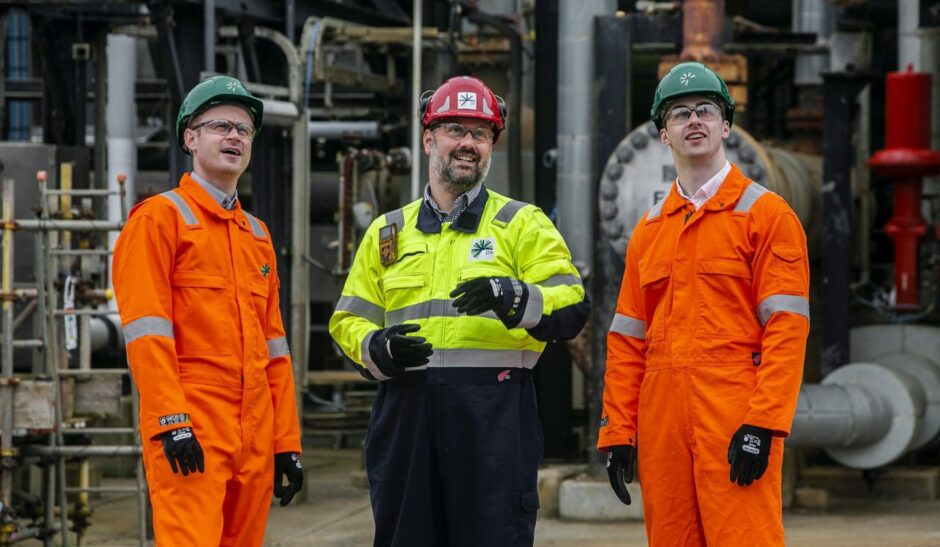
A secure supply of energy is something we used to take for granted. Now it’s different.
Putin’s terrible invasion of Ukraine combined with the faster than anticipated economic recovery from Covid-19 means countries are competing to meet increasing energy demands and generating highly volatile global commodity markets.
As a result of Russia removing its gas supplies, UK consumers have faced months of
uncertainty and painful increases in gas and electricity costs. In the short term, the
Government’s plan to introduce the largest ever consumer support package will help alleviate these problems.
The UK’s energy security landscape featured prominently in our 2022 Economic Report. We looked at ways to improve the availability of reliable supplies of energy including gas, oil, and offshore wind, while pointing our new government to the nation’s key strengths and vulnerabilities.
Building a low carbon energy system that’s sustainable, resilient, and affordable, needs
strategic thinking to develop energy policies and actions that will endure. They must ensure the UK has secure and reliable sources of energy to power and heat our homes plus fuel to support our industries and our transport needs. Reforming how energy markets operate is one way, but the biggest opportunities lie in developing home-grown energy.
Our sector has over 50 years experience of extracting oil and gas. As reliable, responsible partners, we’ve supported successive governments to produce homegrown secure energy to power the nation. In 2021, these resources supplied 75% of the UK’s total energy needs with gas generating over 40% of the country’s electricity and heating 85% of homes as well as fuelling many industrial processes.
Oil fuels 95% of our transport needs and even a decade from now, all projections consistent with delivering net zero show oil and gas will comprise our largest energy source, while playing a part of the mix in years to come.
In this financial year, the sector will contribute £13.8 billion in taxes alone. Since the North Sea industry started, we’ve paid £400 billion to the Exchequer. Currently, we face the challenge of a 65% tax rate but through it all, we’re working on the long-term answer to developing the clean and secure energy the UK needs.
The 33rd oil and gas licensing round will boost investment in North Sea exploration and give clear support to UK-produced energy. We can’t afford to keep increasing our reliance on imported energy. Doing that would shift to other countries the benefits our industry delivers including economic contribution, skilled employment and secure energy supplies. It would lead to job losses and energy imports that may not meet the UK’s ambitions for greenhouse gas emission reductions, while imposing huge long-term costs on UK consumers and businesses.
The licensing round will include the Climate Compatibility Checkpoint which should provide us with a clear and quantifiable process that supports the drive for net zero and delivers a managed transition towards cleaner energies. We welcome this and believe it should comprise a wider package of measures we agreed with Government as part of the North Sea Transition Deal to deliver a carbon neutral basin by 2050.
The Deal has four targets which are to reduce UK greenhouse gas emissions by 60 million tonnes; increase investment in clean energy by £16 billion, create 40,000 new energy jobs and ensure 50% UK content over the lifecycle of all new energy projects, including oil and gas decommissioning.
There are five commitment themes: People & Skills, Supply Chain Transformation, Hydrogen, Carbon Capture and Storage and Supply Decarbonisation.
Many oil and gas production companies are applying their expertise to invest in renewable energy and deliver the critical supply chain work needed to support licensees. Equinor is building the world’s largest offshore wind farm at Dogger Bank while TotalEnergies, is a key player in Seagreen, Scotland’s largest offshore wind farm.
Increasingly we’re replacing gas and diesel with offshore wind to power offshore platforms with clean electricity. Since 2018, we’ve cut greenhouse gas emissions by 20% and we’re progressing emerging low carbon technologies like hydrogen, and carbon capture and storage projects to help the UK’s industrial hubs reduce their emissions.
These exciting developments demonstrate how we’re combining responsible North Sea
production while accelerating the decarbonisation of energy across the UK and I look forward to working with our increasingly diverse member companies to deliver our net zero objectives.
Recommended for you
